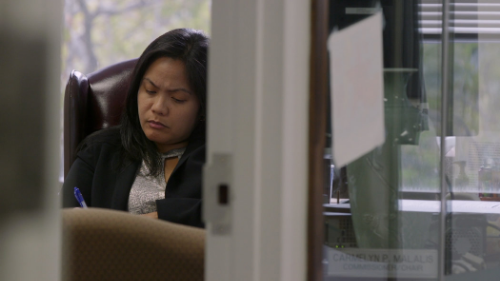Photo credit: New York Times.
This interview with Carmelyn P. Malalis, chairwoman and commissioner of the New York City Commission on Human Rights and U.S. FWN100™ '09 was conducted and condensed by Adam Bryant for Corner Office, New York Times.
Q. Were you in leadership positions when you were younger?
A. From a very early age, I was in leadership roles, whether it was choir president in grade school or student council president in high school. My parents are immigrants from the Philippines, and even though they were proud of me, I think they were wary of the independence that was awakening in me. Having their daughter expressing her opinions so publicly and openly was just not something that culturally they were accustomed to.
A few years ago, I received an award, and my parents joined me at the luncheon. My parents and I have the type of relationship and experience that I know a lot of my friends who are also second-generation have with their parents. We’re out in the world doing things that are very different from their lives. Often the result is that our parents know very little about what we feel very strongly about.
Then there are these moments when it becomes very real for your parents. I vividly remember after the event, we went to get our coats, and my dad said to me: “You know, Carm, when you were young, you were very opinionated, and it was really tough on me and Mom. But I can see it’s done well for you.” I think about that all the time.
Do you see strands of your parents in your leadership style today?
To the extent that real multitasking exists — because I’m aware of all of the studies saying there’s no such thing as multitasking — I definitely got that from my mother. I grew up thinking she could do everything.
And my core belief of wanting to reach out to more marginalized populations and working with vulnerable groups comes from my father, certainly. I remember he would occasionally make trips on his own to the Philippines to visit a sick relative. He would leave with a full suitcase of clothing, and he would come back with really just the clothing on his back. And my mom would say, “What happened?” His answer was always, “Somebody needed it more than me.”
Did you have a clear idea in college what you wanted to do for a career?
My mom was a doctor, and I started out college thinking I was going to be a doctor too. By the end of my first year in college, I like to say that I joined the support group for other Asian-American non-pre-med students. I veered toward doing a lot more of the small seminar classes that were very much about empowerment, disempowerment, relationships of different communities. That started me thinking that I wanted to do something in law or politics.
Watch the Video Interview.
News story courtesy of the New York Times.

